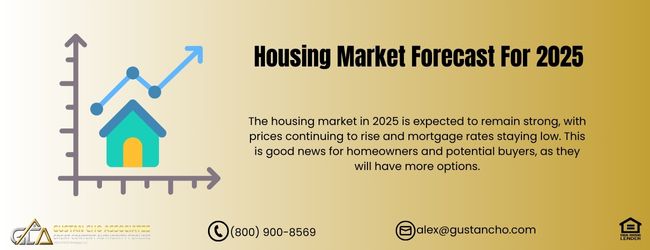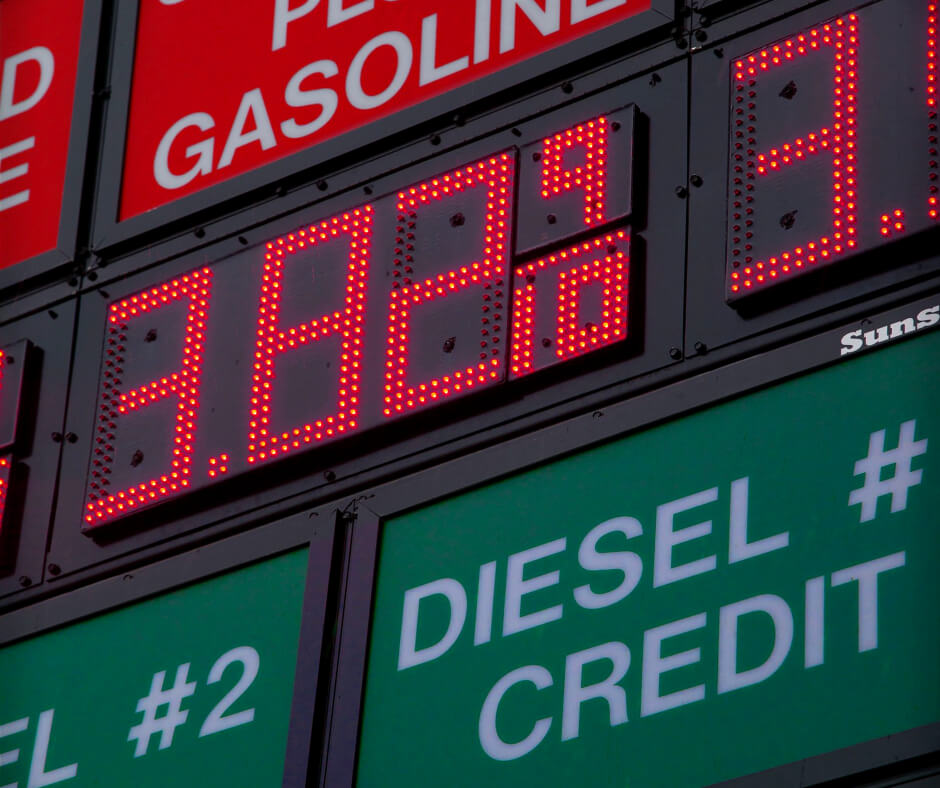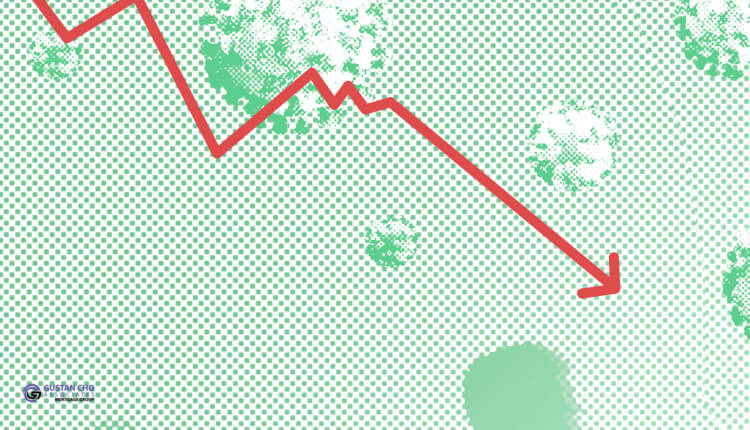Is There Another Housing Bubble: GCA Forums

Is There Another Housing Bubble In The Coming Weeks And Months? The housing market has been booming since 2013. Home prices have been skyrocketing year after year. Many analysts and economists have been anticipating a housing market correction. However, the housing market has been booming with no signs of correction. John Strange, a senior mortgage loan originator with GCA Forums Mortgage Group, says the following about another housing bubble:
The right-hand rule in basic economics 101 is that what goes up normally comes down. The Dow Jones Industrial Average was nearing 30,000 before the coronavirus outbreak in February 2020.
However, the Dow drops to 18,000 due to the pandemic. Today, one year after the COVID-19 pandemic broke out in the United States, the Dow Jones Industrial Average broke 34,000. However, the housing market has not experienced any correction. It is the exact opposite and is booming more than ever. Many home buyers waiting on the sidelines have seen home prices skyrocket, and many can no longer afford homes at this price range. The billion-dollar question is, will there be another housing bubble shortly? In the following paragraphs, we will cover the million-dollar-plus question of whether there is another housing bubble.
Many Homeowners Are Afraid Of a Large Housing Market Correction
Home prices have been rising, and they do not want to make a slight correction. Never in history has the seller’s housing market been so strong. Most home sellers are selling homes at a premium over the list price. Is selling homes over the list price the new norm? The housing market forecast remains strong. Coupled with historically low mortgage rates, the exodus of city dwellers moving to the suburbs and rural areas, and companies offering remote job opportunities to their employees, the home purchase market is expected to remain strong for years to come.
Worried About the Housing Bubble? Get Expert Advice on Your Real Estate Investment!
Contact us today to discuss your options and navigate the potential risks of the housing bubble.
Are We Approaching Another Housing Bubble?
Concern over a housing bubble is at the forefront for homeowners, investors, and policymakers, particularly due to the drastic impacts stemming from the 2008 financial crisis. With the home prices set to surge, the interest rates set to increase, and the economic uncertainties of 2025 looming, many are left asking: Are we on the cusp of a housing bubble? This post analyzes the current drivers of the housing market, compares them against conditions from the mid-2000s, and assesses the likelihood of a bubble forming.
What Is a Housing Bubble?
A housing bubble occurs when there is a rapid increase in the speculative demand for homes due to a lack of underlying economic fundamentals such as income growth, rental returns, or investment in the housing sector. The price of homes eventually peaks, leading to a sharp correction, or crash, when the bubble bursts. A staggering example of this is the 2008 housing crisis, which stemmed from a subprime mortgage and lax regulations, which resulted in millions of Americans losing homes to foreclosure. This also triggered a global financial crisis.
To determine whether we are likely to face another predicted bubble, we must analyze the key indicators: lending practices, economic conditions, market trends, and the sentiment at play.
New Trends and Events in the 2025 Housing Market
Booming Property Prices
As previously noted, a spike in remote working coupled with a surge in institutional investments aided in driving up demand in the housing market. The housing supply remained constrained in conjunction with ultra-low interest rates before early 2023. In 2024, U.S. home values surged by 5%, a massive deceleration from the double-digit spikes witnessed in 2021-2022. While Phoenix and Austin remain ‘hot’ markets, certain locations are starting to stall because of decreasing affordability.
Demand Destruction
With a 6-7% mortgage rate in 2025, median prices at roughly $350,000, $400,000, and below put affordability at an all-time low. The National Association of Realtors’ Housing Affordability Index suggests that many households are excluded due to price. This was nowhere to be found in the 2000s, where buyers were provided loose credit and a stretch demand was easily sustainable. However, that raises many questions surrounding long-term demand.
Supply Constraints
New construction in the market today lags behind the chronic shortage of homes compared to the 2000s, when overbuilding contributed to a speculative frenzy. Due to the 2008 crash, construction has slowed down on new builds, and zoning restrictions, high material costs, and limited labor all slow down construction further. These factors increase the price and create a slow speculation, less than pre-2008.
Comparing Today’s Market to the 2008 Bubble
Now let’s analyze today’s key factors compared to the mid-2000s to measure bubble risk.
Lending Standards
- With the speculation boom in the 2000s, subprime lending was greatly impacted by “no-doc” loans, and teaser rate adjustable mortgages fueled the fire.
- Speculator renting led to large defaults during the recession, coupled with rate resets, further burdening borrowers.
- Nowadays, lending standards are stricter due to Dodd-Frank Act regulations put in place post 08 that require verified income (W2s/1099s), assets, and debt-to-income ratios.
- Most mortgages in 2025 are fixed-rate, while there is a slight increase in subprime lending, the market is mainly stagnant.
- There are high risers due to nontraditional lending, like fintech loans, that need further monitoring.
Leverage and Speculation
Affording mortgages drew a lot of buzz during the 2000s, due to the lack of speculation centers. Instead, homeowners took out cash-out refinancing, while flippers and investors ruled the roost. Nowadays, speculation has significantly slowed, but investor activity is high, as large firms buying around 3% of homes means there is no longer “home flipping”. Pre-2008 foreclosure ratios have been reduced, as homeowners hold more equity than before, seeing loan-to-value ratios of 50% instead of 70-80%.
Economic Backdrop
The causes of the 2008 crisis originated from a weak economy, along with heavily leveraged financial institutions. Looking to 2025, an economy grappling with inflation and geopolitical tensions is predicted. On the other hand, banks will have more capital, and unemployment levels will still be relatively low (about 4%). Even so, high household debt (credit cards, student loans) and slowing wage growth may further strain affordability.
Warning Signs and Mitigating Factors
Potential Red Flags
Overvaluation in Certain Markets:
- A handful of cities have price-to-income ratios far exceeding their historical values.
- Take San Francisco, for example.
- The price of homes is 10-12 times the median household income, exceeding the sustainable ratio of 3-4.
Investor Overreach:
- The growing number of institutional investors consolidating single-family homes might disrupt the local markets by artificially constraining supply for entry-level buyers, thus inflating prices.
Interest Rate Sensitivity:
- Demand cooling overseas comes with higher rates as well.
- For those borrowers sitting at the edge of being over-leveraged, it could mean a spike in defaults.
Reasons for Optimism
Strong Fundamentals:
- Price growth these days is complemented by actual demand.
- Speculation is no longer the main driver, but millennials are finally entering the market, and supply shortages.
Regulatory Safeguards:
- Greater scrutiny on practices involving mortgage-backed securities and banking reduces the risk of a systemic collapse.
Slower Price Growth:
-
The self-correcting mechanism that has previously caused bubbles while markets respond to higher rates could prevent a bubble altogether.
Expert Opinions And Economic Forecasts
The economists seem to split in the middle when it comes to bubbles. Some, like Federal Reserve colleagues, believe systemic risks are not as high given the higher capital requirements and lower leverage. Meanwhile, Bob Shiller, a Nobel laureate, argues that “froth” in certain markets backed by irrational exuberance has the potential to lead to localized corrections. In a survey conducted by the National Association of Home Builders in 2024, 60% of builders noted that while they expect a slowdown, supply constraints should act as a stabilizing force.
Recent posts on X demonstrate a more public framing of the issue and reasoning. Some users tend to echo the pessimistic sentiment about a bubble because prices are even more “insane” than before. Conversely, others argue that a crash seems unlikely due to low inventory and demand. These single narratives encapsulate uncertainty but do not incorporate the systematic approach data analysis offers.
What Could Trigger a Housing Bubble—or Prevent One?
Bubble Potential
- Rapid Rate Increase: Central Banks risk stretching mortgage payments by too much if they increase the rate too quickly, leading to defaults and price drops.
- Shock to the Economy: Demand might shrink, particularly in overpriced markets, such as during a recession or job market downturn.
- Unwinding Speculation: Certain areas might experience a surplus, and prices will inevitably drop due to investors’ mass exit.
Preventive Factors
- Policy Actions: Government initiatives like first-time home buyer grants could help sustain demand.
- If growth slows, central banks might also consider pausing rate hikes.
- Rebound in Construction:Increased residential building activity might resolve supply shortages and stabilize prices.
- Consumer Caution: Buyers today are more cautious than in the 2000s.
- Many opt for fixed-rate mortgages and avoid over-leveraging.
Is the Housing Market in a Bubble? Find Out How It Affects You!
Contact us today to learn more about the market trends and how you can navigate the potential risks.
Housing Bubble or Correction?
- The housing market in 2025 does not resemble 2008.
- While high prices and affordability challenges raise concerns, systemic bubbles are less likely due to stricter lending policies, lower leverage, and supply constraints.
- Localized corrections in overvalued markets are greatly plausible, especially with worsening economic scenarios or further rate hikes.
- The market is at a high risk, not a bubble state. Cautious homebuyers focusing on long-term value instead of speculative gains are recommended.
- Policymakers and industry stakeholders must act on increasing supply and curbing non-conventional borrowing to avoid excesses.
- Will another housing bubble form? Data points otherwise, but justified watchfulness is necessary.
Is There Another Housing Bubble Crash? Mortgage Agencies Cautious
Mortgage agencies such as HUD, VA, Fannie Mae, and Freddie Mac have lowered their loan-to-value ratios on cash-out refinances. The Veterans Administration (VA) has lowered its cash-out loan-to-value from 100% to 90% LTV. HUD has lowered its 85% cash-out loan-to-value to 80% LTV. Due to skyrocketing home values, Fannie Mae and Freddie Mac have tightened their credit and DTI standards. These mortgage agencies are afraid of another housing crisis and/or a major housing market correction. The Federal Reserve Board was supposed to cut interest rates eight times, but now Jerome Powell said inflation is high, so no rate cuts. This article will discuss whether we will have another housing bubble in the coming weeks and months.
Is There Another Housing Bubble Crash Shortly?
Home prices are skyrocketing year after year. This is a national crisis. Many homebuyers are being priced out of buying a home. Home prices are outpacing the national median income. Many homebuyers are being priced out of the housing market. Many would-be homebuyers are hoping for a market correction. Many experts and economists predict another housing bubble, worse than the 2008 financial crisis. Despite the coronavirus pandemic and high unemployment, the nation has a major housing shortage. There is more demand for homes than inventory. This is coast to coast and not just limited to a certain region. Home prices are skyrocketing in all 50 states, more so in lower-taxed states with affordable housing than in far-left liberal states with high taxes and high home prices.
Is There Another Housing Bubble: Housing Market Forecast
Housing inventory is at a historic low. This holds even with the economic uncertainty of the coronavirus pandemic, an unprecedented event, and the Democrat-controlled House of Representatives and Senate. Political unrest and talks of President Joe Biden and Democrats cheating in the 2020 election have no impact on the strong housing market. There is a new norm in the housing market. Multiple offers and buyers offering over-the-list prices on homes are becoming the norm. Homebuilders are thriving, with homes selling even before breaking ground becoming the new norm. Real estate investors buying flips are thriving. Many lenders have hundreds of clients with solid pre-approvals who have an issue originating and closing loans because their homebuyers cannot find homes at list prices.
Is There Another Housing Bubble? Rental Prices Are Lagging Home Prices
In recent years, The housing boom is not fueled by subprime lending or easy lending. All home loans are full-doc-qualified traditional mortgages. Non-QM mortgages are fully vetted, and income and the down payment are key when qualifying. There are asset-based lending programs. However, non-QM lenders require strong payments, and all loans are credit qualified. Mortgage lenders strongly adhere to the ability to repay. This holds whether the lender approves traditional and/or non-QM mortgages. Dale Elenteny, a senior loan officer at GCA Forums Mortgage Group says the following about a housing bubble:
Home prices are rising throughout the United States. Many areas have home values that have risen over 50% since 2013. Many home buyers and real estate investors have been waiting on the sidelines since 2013, patiently for a housing bubble crash. However, there is not a correction.
The key question is whether we are in the midst of a housing bubble, and if so, when will it burst? Some experts are strongly adamant we are in the midst of another housing bubble and there will be a housing correction. A slight correction in the housing market is healthy. However, nobody has a crystal ball, and we cannot predict whether this is a one-off economic situation. GCA Forums will keep our viewers updated on any updates about another housing bubble. STAY TUNED!!!
UPDATE of this Breaking News Article: Is There Another Housing Bubble?
Experts are debating whether another housing bubble could be in the next few months. Based on forecasts and indicators, this is what we know.
Economic and Market Conditions- HomePrices and Market Activity
- Stability and Gradual Adjustments: Some experts think that home prices may fall slightly, by around 5-10%, due to such factors as weakening demand and economic uncertainty.
- However, other parts of the country could still see price increases if demand remains strong but supply tightens
- Regional Variations: Markets like the Bay Area, Austin, and Phoenix could continue seeing price declines, while states within the Southeast region may experience more rapid price increases.
Mortgage Rates
- Potential Decline: Mortgage rates have been at high levels compared with history.
- However, they might start falling back later in 2024 as inflation cools off, leading to potential easing of Fed monetary policy.
- But it’s expected that they will remain relatively high against pre-pandemic lows
Key Factors Influencing the Market
- Geopolitical and Economic Stability: Ongoing geopolitical issues and domestic political events like the 2024 elections can affect financial stability and housing market performance.
Supply and Demand Dynamics
- Inventory Levels: In certain markets, an increase in inventory may help alleviate some extreme seller’s market conditions, thereby giving buyers more choices and leading to price stabilization or moderation.
- Construction Costs: Rising construction costs and economic slowdowns will likely impact the housing industry, causing price growth to slow down more quickly than anticipated.
Market Predictions
- No Immediate Crash: Most experts believe we won’t see anything close to a repeat of what happened after Lehman Brothers collapsed in September 2008.
- They think that this time around, any correction will be slower, with different areas correcting up or stabilizing down rather than one big crash all over again
- Buyer vs. Seller Markets: Right now, places like Miami are still sellers’ markets, but elsewhere, things are beginning to tip back towards balance, which gives buyers a little more leverage in negotiations.
- Several factors should prevent a housing bubble from forming soon; these include stability in pricing over time, an increase in available inventory, and possible reductions of interest rate charges. However, variations at regional levels combined with wider economic activity will continue to shape the housing market’s direction.
This Headline News article was revised and anddupdated on May 14th, 2025.
Thinking the Housing Bubble Will Burst? Let’s Talk About Your Next Steps!
Contact us now to get the latest insights and find out how to secure the best financing options for your home.






Responses